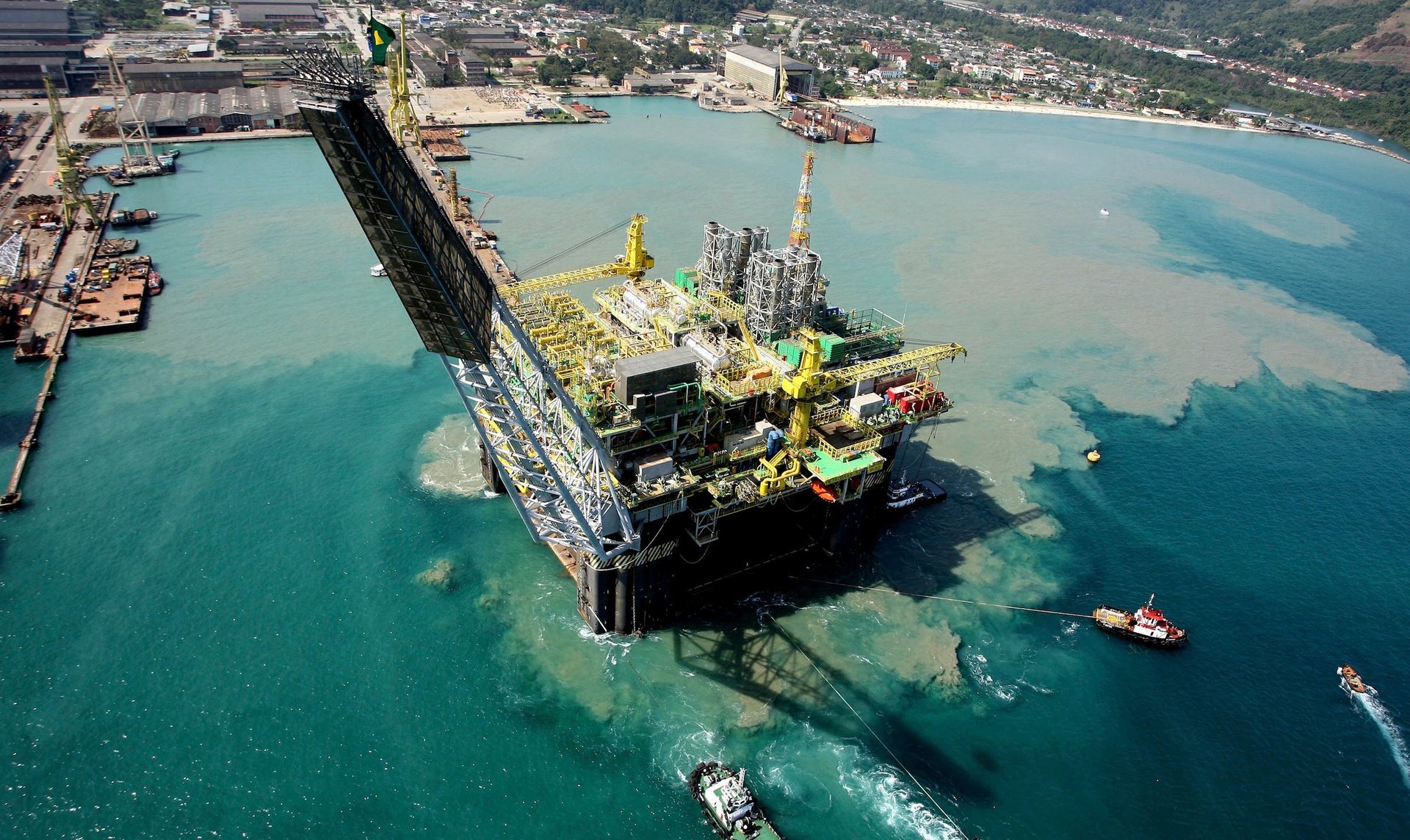Indebted and with rising costs, Petrobras still keeps spending
Petrobras’ executives projected in 2011 that the state-run oil company, which exerts monopoly control over the quasi-entirety of Brazil’s oil reserves, would become the world’s largest listed company by 2016. But earnings this week sent the company’s shares tumbling to their lowest level since 2005. The company has been the worst-performing big oil producer this past year, Bloomberg reports, with earnings decreasing by 17% in the fourth quarter of 2012, missing expectations of 14.6 billion reais ($7.3 billion) by nearly 3 billion reais.


Petrobras’ executives projected in 2011 that the state-run oil company, which exerts monopoly control over the quasi-entirety of Brazil’s oil reserves, would become the world’s largest listed company by 2016. But earnings this week sent the company’s shares tumbling to their lowest level since 2005. The company has been the worst-performing big oil producer this past year, Bloomberg reports, with earnings decreasing by 17% in the fourth quarter of 2012, missing expectations of 14.6 billion reais ($7.3 billion) by nearly 3 billion reais.
The reason? Petrobras is the most indebted publicly-traded oil company in the world, according to Bloomberg, owing 196 billion reais, and is having a difficult time cutting down on costs. For example, Petrobras pays more for energy it buys abroad than it charges distributors (a 12% markdown) because energy prices are fixed in Brazil, as a measure to control inflation. Petrobras is reducing its shareholder dividend to conserve cash but kept borrowing last year (raising its debt by 26%) to finance major investments. Even as it struggles to find ways tighten costs, the company plans to borrow $16 billion through 2016 to continue building refineries, develop its deepwater fields, and increase output at the Lula oil field (the largest ever discovered in Brazil), where the company acquired the right to develop 5 billion barrels of oil.
Petrobras extracts more oil from the deep reaches of the sea than any other company, and needs to build platforms and drilling infrastructure to extract even more. Annual production fell slightly, though sales were up on the same quarter a year ago.
Whereas the challenge was once technical—how to extract copious oil reserves from beneath sea salt and rock—the company’s current problems, such as its enormous debt load and high costs, stem from mismanagement rooted in the company’s identity as a state-owned enterprise. For example, Petrobras has been told to build projects in Brazil’s impoverished north-east, to stimulate development; to source its parts locally and hire Brazilians; to keep its prices low to combat inflation and defray energy costs for Brazilians.
Brazil’s stock index, the Bovespa, fell 1.28% on news of Petrobras’ diminished earnings. The Bovespa is already down more than 2% this year, while Mexico’s stock index is up almost 5%, and Chile’s, nearly 6%. While shares in Petrobras slid 36% in the past year, Colombia’s largest oil company, Ecopetrol, gained 29%.